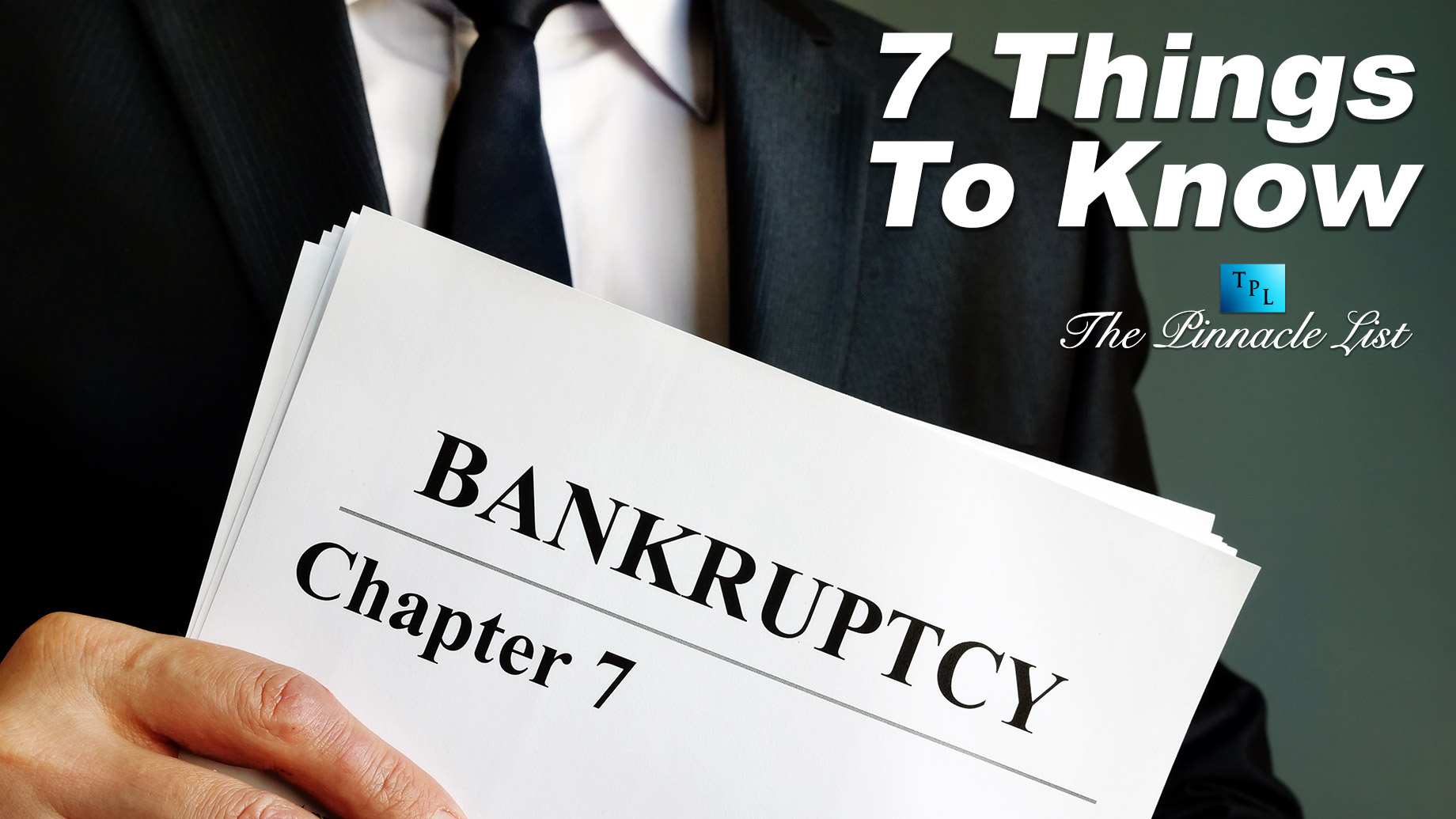
If you’re feeling overwhelmed by debt and unsure what to do next, Chapter 7 bankruptcy might be the solution you need. Often referred to as “liquidation bankruptcy,” this process allows you to discharge most unsecured debts and get a fresh financial start.
However, before diving in, it’s essential to understand what Chapter 7 entails and how it might affect your financial future.
Keeping all of this in mind, here are seven key things to know about filing for Chapter 7 bankruptcy:
1. Chapter 7 Eliminates Most Unsecured Debts
The primary purpose of Chapter 7 bankruptcy is to discharge unsecured debts, such as credit cards, medical bills, and personal loans. This means you are no longer legally obligated to pay them. It’s a powerful tool for wiping the slate clean and relieving yourself of unmanageable financial obligations.
However, some debts cannot be discharged through Chapter 7. These include student loans (except in very rare cases), child support, alimony, and certain tax debts. It’s important to know which of your debts will be covered before filing.
2. The Means Test Determines Eligibility
Not everyone qualifies for Chapter 7 bankruptcy. To make sure it’s reserved for those truly unable to pay their debts, you’ll need to pass a means test. This test compares your income to the median income for households of your size in your state.
If your income is below the median, you qualify automatically. If it’s higher, you may still qualify after deducting certain expenses to calculate your disposable income. Consulting with a bankruptcy attorney can help you navigate this process and determine your eligibility.
3. The Automatic Stay Provides Immediate Relief
One of the most immediate benefits of filing for Chapter 7 bankruptcy is the automatic stay. This legal protection halts all collection efforts, including phone calls, wage garnishments, lawsuits, and even foreclosure proceedings.
For many, the automatic stay is a breath of fresh air, providing much-needed relief from relentless creditor harassment. While this protection is temporary, it gives you time to focus on the bankruptcy process without constant pressure.
4. You May Not Lose Your Assets
A common misconception about Chapter 7 bankruptcy is that you’ll lose everything you own. While Chapter 7 is sometimes called “liquidation bankruptcy,” most people who file are able to keep their essential assets.
Bankruptcy laws allow for exemptions that protect certain types of property, such as your primary residence, car, retirement accounts, and personal belongings, up to specific limits. In many cases, filers don’t lose any assets at all.
“In fact, the large majority of people who file Chapter 7 do not lose any assets at all,” Reed Law Firm, P.A. explains. “Although some people do not mind some assets being liquidated, keep in mind that there are plenty of options available that will keep you from losing what’s important to you. Don’t let the fear of losing assets keep you away, as we will make sure to protect what you don’t want to lose.”
With that being said, it’s critically important that you work with a knowledgeable attorney to understand the exemptions available in your state and ensure your most valuable possessions are protected.
5. Chapter 7 Bankruptcy Appears on Your Credit Report
Filing for Chapter 7 bankruptcy will affect your credit score and appear on your credit report for up to 10 years. While this may seem daunting, it’s important to weigh the temporary impact against the long-term benefits of debt relief.
In many cases, individuals who file for bankruptcy already have damaged credit due to missed payments and high debt balances. Bankruptcy offers a fresh start, allowing you to rebuild your credit over time. Many people find that their credit scores begin to improve within a year or two after filing, especially if they adopt good financial habits.
6. Legal Guidance Is Essential
The bankruptcy process can be complex, and filing incorrectly could lead to delays or even dismissal of your case. That’s why it’s crucial to work with an experienced bankruptcy attorney who can guide you through every step.
Your attorney will help you:
- Determine if Chapter 7 is the right choice for your situation
- Navigate the means test
- Ensure all required paperwork is accurate and complete
- Protect your assets by applying the correct exemptions
7. Bankruptcy Is a Tool, Not a Failure
Filing for Chapter 7 bankruptcy can feel like a daunting decision, but it’s important to view it as a tool rather than a personal failure. Bankruptcy exists to help individuals and families regain financial stability after experiencing overwhelming debt.
The process provides an opportunity to reset your finances, learn better money management skills, and build a more secure future. It’s a legal right designed to help people move forward – not a punishment.
Is Chapter 7 Bankruptcy the Right Choice?
Chapter 7 bankruptcy isn’t for everyone – but it’s certainly the right choice for many who are facing insurmountable debt and financial stress. The only way to know for certain if it’s a good choice for you is to consult with a bankruptcy attorney and get personalized advice that’s relevant to your situation and circumstances. When you take the time to consult with an attorney, you’ll get a feel for where to go from here.